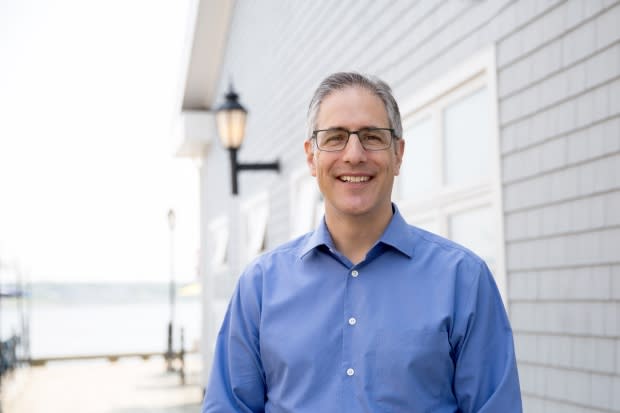Doctor orders more decision-making 'on the ground' in Cape Breton
A prominent Nova Scotia doctor is calling on the government to bring some health-care decision-making back to Cape Breton.
The province amalgamated nine regional health authorities into a single body in 2015 with four geographic zones.
But those zones are too large and the territory too diverse, said Andrew Lynk, a Cape Bretoner who serves as chief of pediatrics at the IWK Health Centre in Halifax.
"I think we need someone at the executive level to really be on the ground [in Cape Breton] and helping out," he said.
"I think it's hard to do from Halifax."
No 'magic elixir'
In recent years, Cape Breton's emergency rooms have become crowded while the island has suffered a steady loss of physicians and specialists. Some doctors continue to practise but have quit administrative positions with the health authority.
More recently, the four hospitals in and around Sydney made headlines for having a death rate that's among the highest in Canada.
"I'm not suggesting having all local leadership in Cape Breton is going to be a magic elixir — it won't," said Lynk.
"But without it, I think it's going to be much harder to manage the complexity and manage the crises and manage quality improvement and all those type of things."
119 vacancies
As of Monday, there were 119 vacancies for doctors or specialists across the province. One-third of those were in the Eastern Zone, which includes Cape Breton and parts of Guysborough and Antigonish counties on the mainland.
A family physician, Dr. Meaghan Keating, quit last week as the zone's family practice network lead, sparking an outcry on social media.
At least two doctors, Monika Dutt of Sydney and Jeannie MacGillivray of Antigonish, say they have been forced to leave the area within the last six months after trying to negotiate part-time work hours with the health authority.
The island has also lost several psychiatrists in the last year, including the department head, and is without a child and adolescent psychiatrist.
'We do have local leadership,' says NSHA
Janet Knox, CEO of the Nova Scotia Health Authority, said all areas of the province are facing challenges, in part due to the amalgamation of the former district health authorities.
"I think change is really challenging," she said. "This is massive change — change in roles, change in relationships, and we're learning together."

But Knox said not all decisions are made in Halifax.
"We do have local leadership in Cape Breton," she said. "We do have local leadership in the zones and they have the authority to make the decisions."
Gains being made
Doctors retire, move or leave administrative positions for a variety of reasons, Knox said, and personnel changes are to be expected.
She noted that Cape Breton is seeing improvement in some areas.
The Eastern Zone has the least number of residents on a waiting list looking for a family doctor and recruitment is replacing some of the doctors who have left, she said.
Knox also pointed to the impending closure of aging hospitals in North Sydney and New Waterford and the redevelopment of two others as a gain.
"I keep focused on the long outcome, and I'm very excited about the potential in the Cape Breton Regional Municipality, because that's a whole in-system planning that's never been done to that extent in this province before."

